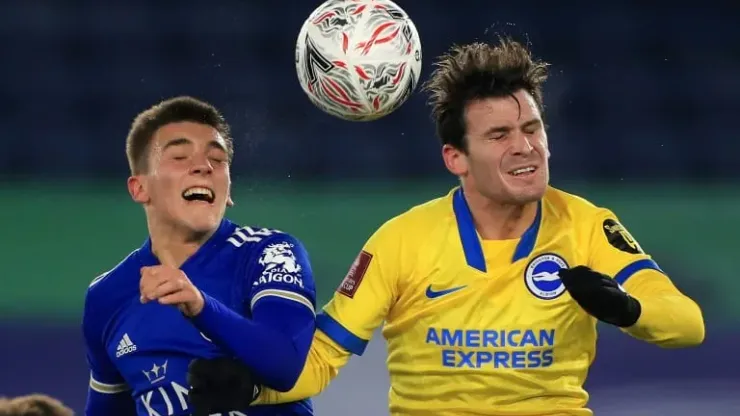London (AFP) – Guidance designed to limit the amount of heading players do in training will be introduced at all levels of English football next season, it was announced Wednesday.
Clubs in the Premier League, Football League, Women’s Super League and in all grassroots football, as well across all sections of the England set-up are set to receive the new advice, designed to reduce the risk of brain injury from heading a football.
The move has been agreed by England’s governing Football Association, Premier League, English Football League, Professional Footballers Association and League Managers Association.
Professional clubs will be requested to limit high-force headers — those following a long pass of more than 35 metres or from crosses, corners and free-kicks — to 10 per training week, while also developing individual player profiles which will help tailor their training needs.
The guidance for amateur clubs is for heading practice to be limited to one session per week and no more than 10 headers per session.
But, significantly, none of the new advice applies to match days.
There are also concerns the guidance makes no distinction between men and women, despite increasing evidence that women are more susceptible to brain injury.
Nor does the latest advice impose any new limits on heading in youth football, with guidelines for the junior game having been announced in February 2020.
Decades of anecdotal evidence have suggested a link between repeated heading of a football and brain injury, something that was given legal force following a 2002 inquest into the death of former England striker Jeff Astle.
It found heading leather footballs had contributed to brain trauma prior to his death.
“Our heading guidance now reaches across all players, at all levels of the game,” said FA chief executive Mark Bullingham, who added officials were committed to further medical research.
– ‘Suffering’ –
Dawn Astle, a co-founder of the Jeff Astle Foundation set up in memory of her father, welcomed the announcement.
“Most importantly it starts to protect the footballers of today and their brains, it will protect youngsters playing on a Saturday and Sunday, it will protect our female footballers and footballers all across the Football League,” she told talkSPORT radio.
“Football must put in place a pot of money or a trust fund to look after the players now who are suffering from dementia or neurological diseases.
“Our footballers are five times more likely to die of Alzheimer’s, four times more likely to die of motor neurone disease and twice as likely to die of Parkinson’s.”
Meanwhile, dementia expert Dr Michael Grey of the University of East Anglia, queried how the guidance would be enforced.
He was also concerned about the ongoing lack of restrictions on heading during youth football matches in England.
Grey insisted the brain of a child was at “significantly greater risk” than that of an adult, saying it was “time to consider an outright ban on heading the ball for younger children — both in practice and match play”.
Awareness about concussion in sport has grown since America’s National Football League agreed to a US$1 billion settlement in 2015 to resolve thousands of lawsuits by former players suffering from neurological problems.
This has prompted a number of sports around the world, including rugby union, rugby league and cricket, to strengthen their concussion protocols.
200+ Channels With Sports & News
- Starting price: $33/mo. for fubo Latino Package
- Watch Premier League, Women’s World Cup, Euro 2024 & Gold Cup
The New Home of MLS
- Price: $14.99/mo. for MLS Season Pass
- Watch every MLS game including playoffs & Leagues Cup
Many Sports & ESPN Originals
- Price: $10.99/mo. (or get ESPN+, Hulu & Disney+ for $14.99/mo.)
- Features Bundesliga, LaLiga, Championship, & FA Cup
2,000+ soccer games per year
- Price: $5.99/mo
- Features Champions League, Serie A, Europa League & Brasileirāo
175 Premier League Games & PL TV
- Starting price: $5.99/mo. for Peacock Premium
- Watch 175 exclusive EPL games per season






